Wednesday 16th July 2025, Walcot Wood
A bit of research on that font of all knowledge, the internet, reveals that Walcot Wood is a tiny remnant of woodland from a vast Elizabethan (I) estate. Although it is small it contains a good number of veteran oaks, i.e. trees that are in their final stage of life which may last 300 years or more.
The wood is situated close to Bury Ditches and it is at this site’s car park that we met. From there it is a half mile or so walk to the edge of the wood. This is mainly downhill from the car park passing Stanley Cottage on the way.
Of course, a long walk to the site carries great risk as people get distracted by any attractive looking habitat noticed along the way.
On this occasion the attrition rate was high.
I tried to set the example and made straight for the site!!
But by the time I got there I was accompanied by less than half the number we started out with.
A few soon followed but two were not seen again until nearly lunchtime! But, to be fair, they had been on site, out of sight, for some of that time. Time enough for one of them to find a species of fly new to the county, Argyra auricollis. And the other to find a Wood White butterfly.
Finding a Wood White was a surprise. None of us knew that it was to be found in this wood. (Later checking of the records revealed that it had been seen twice before in 2007 and 2011.) However, it should not have been too much of a surprise as Wood whitea arte found at Bury Ditches.
Once we were on site the vast majority of us explored the vegetation that bordered the track that ran through the first half of the wood.
This rose gently to a meeting of several tracks which provided a convenient gathering point.
And spot for lunch.
We then progressed sightly right, downhill, to a path that forked to the left which passed through the trees at the bottom of a slope where most of the veteran trees were situated.
When the inevitable end of the day arrived, we returned by the same path that we had come.
But, as it was mostly downhill on the outward journey, it was UPHILL on the way back.
OK, so far, lots of words and not many pictures. Let’s correct that now with photographs of some of the many species we found on this site.
A Painted Lady.
Chicken-in-the-woods fungus.
A beetle, Cartodere nodifer.
A stiltbug, Metatropis rufescens, which is normally found on Enchanter’s Nightshade.
Watch where you walk! You would not want to put your foot here. An entrance to a nest of the Common Wasp, Vespula vulgaris.
A weevil. Orbitis cyanea.
A 22-spot ladybird.
A harvestman, Homalenotus quadridentatus.
A picture wing fly associated with Burdock plants, Terellia tussilaginis.
A lacebug, Dictyonota strichnocera.
A fly, Rhamphomyia flava.
A mirid bug, Orthonotus rufifrons.
A nymph of a Common Groundhopper.
A moth, Dingy footman.
A Meadow Grasshopper.
A Ringlet.
Another moth, this time a Shaded Broad-bar.
And for some light relief from all these invertebrates, a plant, Burnet Saxifrage.
As we progressed further into the woodland (and away from our cars) we found more and more Wood Whites. In all we found about a dozen during the afternoon.
This provided plenty of photographic opportunities. Here are a few.
It’s no good trying to hide…we can see you!
A male feeding.
A female Wood White in flight.
A female Wood White ovipositing on a leaf of a Bird’s-foot Trefoil.
And finally, a Wood White egg.
My thanks to Natural England for granting us permission to enjoy ourselves and my gratitude to the photographers for providing their excellent images for this report.
































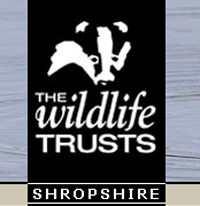

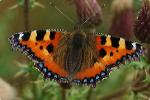




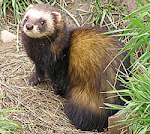

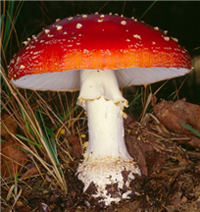





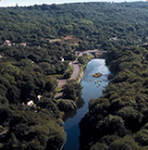






No comments:
Post a Comment
Please feel free to comment on this post...